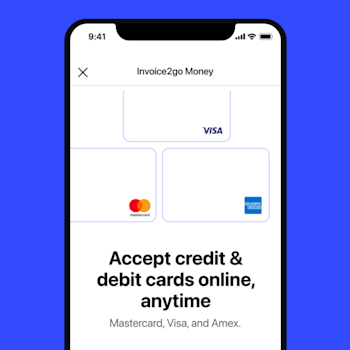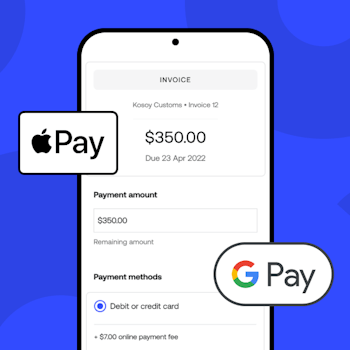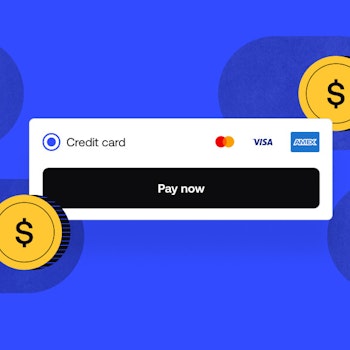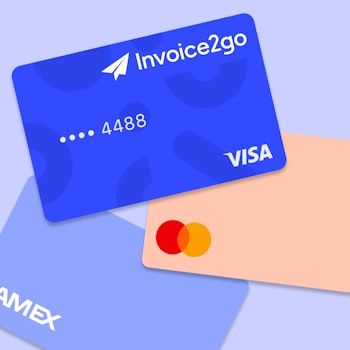
How to register as a certified women-owned business
There are currently 12.3 million women-owned businesses in the United States, almost 114% more than 20 years ago. If you are part of this dynamic group, becoming a certified women-owned business is a massive advantage. It provides access to many resources that would not otherwise be available to you.
So, let's take this journey together. In today's article, we'll talk about women-owned business certifications, what you'll get out of them, the different types of certifications, and the steps you'll need to take to get there. It's a lot simpler than you might think, and the benefits are pretty incredible.
If some of you have business partners who are men, don't stop reading! If you are 51% woman-owned and operated, you qualify.
The many benefits of becoming a certified women-owned small business
The ultimate goal of women-owned business certification is to increase opportunities for women. It doesn't give women any special treatment, per se, but it does raise visibility, a critical distinction when you consider that women in business are often underserved.
According to stats published by writersblocklive.com, 88% of women-owned businesses (that's almost nine out of ten!) are "micro-businesses," generating $100,000 or less in annual revenue. 62% of that group report their business as their primary income source. Over a third of women business owners have experienced gender bias, directly impacting their ability to access financing.
The same study reports that women receive 5% less funding than their male counterparts, but we feel that number doesn't represent what's really happening. In contrast, Bloomberg reports that women received only 2% of venture capital in the U.S. in 2021, clearly indicating that efforts to diversify are still struggling. But despite those concerning numbers, there is a bright spot. Recent years have seen a significant increase in female and non-binary venture capitalists, and that fact alone should move the needle over time as women are more likely to fund women.
Community
The first and most obvious benefit of becoming a certified women-owned business is community. It's one thing to launch and run a business—and that's a feat in itself—but it's even better to know you've got a strong, passionate, driven collective behind you that has your back. The certifying bodies connect you to tons of resources you would not otherwise have, including direct access to government contracts, services, and programs specifically targeted to women.
Visibility
Competition is always stiff for large contracts, especially with government agencies. Legally, federal agencies must fulfill a mandate to award a percentage of contracts to certified women-owned businesses, so having a certification puts you in that pool. Private companies receive tax breaks by working with certified women-owned businesses.
Once you are certified, your company is added to a database large corporations and government agencies can access to achieve their diversity mandates.
You can use your certifications to promote your business, displayed on your website, social profiles, marketing collateral, and at your physical location.
Lead generation
Whether you are interested in government contracts or bidding on jobs in the private sector, your local SBA will help you navigate the system and connect you with the right opportunities. Your certification gives you immediate access to a database of Fortune 500 companies, from which you can browse to find those that prioritize diversity.
Networking and mentorship
Certified women-owned businesses are invited to apply for the SBA's Mentor-Protégé program. You'll also have access to resources like the Women's Business Enterprise National Council, which advocates for female business owners and connects them with conferences, webinars, workshops, summits, and exclusive networking events.
Types of certifications for women-owned businesses
There are two certifications for women-owned businesses, each with its own requirements and eligibility criteria. These certifications are related exclusively to the SBA procurement program and are limited to specific NAICS codes, which you'll find here.
- Woman-owned small business (WOSB) certification requires that the business is:
- A for-profit entity
- Based in the United States
- Run at least by at least 51% women, meaning they must be working full-time at the business and hold the highest decision-making positions available
- Owned by citizens or legal residents of the United States
- Led by someone who has technical experience in the company’s primary business activity
2. Economically disadvantaged woman-owned small business (EDWOSB) has the exact requirements as WOSB, but you must also meet certain economic conditions:
- The owner’s personal net worth is $750,000 or less
- The owner’s average adjusted gross income over three years is $350,000 or less
- The total market value of the owner’s assets must be $6 million or less
The above rules apply to all women listed as business owners but do not include retirement funds or investments that you can't access until retirement. They also do not include any equity in one's private residence. There are other specific exclusions, so speak to your local SBA to clarify what assets apply.
We should also talk about the Women's Business Enterprise certification (WBE). The WBE is a national designation for women-controlled businesses and applies to local, state, and other government authorities as well as airlines and other industries in the private sector. The qualifications for WBE are the same as WOSB, and it allows you to apply for the same contracts, although it also extends to companies outside the listed NAICS codes.
Steps to getting certified as a woman-owned business
If you meet the above requirements and feel you are eligible for one of the two women-owned business certifications, here are the steps you'll need to take to apply.
You can get certified through a third-party entity, or you can self-certify, depending on your preference. The most significant difference between the two approaches is that a third-party agency will charge you for their services, while self-certification is free.
Third-party agencies will walk you through each step to ensure you've dotted all the i's and crossed all the t's, but there is a list of various documents you'll need to gather before you begin:
- Valid passports, birth certificates, or residency papers for each woman business owner on the application.
- Fictitious business name/DBA certificate
- Papers and agreements outlining your business partnership, including articles of incorporation, voting agreements, amendments (if applicable), joint venture agreements, etc.
- Stock certificates and stock ledger
- Three years’ worth of tax returns, including W-2s and schedules for all women business owners (and their spouses if applying for EDWOSB)
- Completed IRS Form 4506-T Request for Transcript of Tax Return for each woman (and their spouses if applying for EDWOSB)
An 8(a) certificate, if you have one, replaces all of the above documents as the federal programs you'll be applying to use the same criteria.
Approved third-party organizations that will help you apply for WOSB and EDWOSB
Any of the following agencies will help you complete your women-owned business certification application. They each have different fees and requirements, so check each one to see which suits your needs best.
U.S. Women’s Chamber of Commerce
The USWCC offers two levels of service where certification is concerned. One is a third-party application and exam service, in which they intake your documents and act as the examiner. The second is Certification Assist, where they will help you organize your documents, walk you through any potential issues, answer any questions you have, and generally prepare you for the certification.
If you feel organized enough and ready to go straight to the exam, you can bypass the assistance. However, if you aren't sure if you're eligible or have a lot of questions and need some hand-holding as you prepare for the exam, the Certification Assist will make the process a lot less overwhelming.
The USWCC charges $275 for the certification if you're a member or $350 for non-members. They also specify that the member must be the applicant (or one of them) to apply the discount. Membership in USWCC is $199 annually and provides you with various benefits beyond certification application discounts.
National Women Business Owners Corporation
The NWBOC provides a platform to apply for various women-owned business certifications and a network of resources to help women learn, grow, and improve their business intelligence.
Part of their mandate is to help women-owned businesses get procurement-ready to feel confident about submitting bids to do business with both the government and private sector. They also advocate for women business owners and are a third-party certifier for other certifications, including Minority Business Enterprise (MBE) and Veteran Business Enterprise (VBE).
NWBOC also offers WBE certification. With a WBE in hand, you'll be fast-tracked to apply for other certificates, so that's always a good place to start.
The fee for certification through NWBOC is $400, but if you apply for two or more certifications simultaneously, you'll get a discount. Certifications must be renewed each year, although the renewal fee is about half of the initial cost.
Women’s Business Enterprise National Council (WBENC)
WBENC offers WBE certification and is also a third-party certifier for WOSB and EDWOSB. In addition to their certificate programs, they also provide resources, education, and opportunities to address women's challenges in entrepreneurship. Some of their programs include networking, executive education and mentorship, pitch opportunities, scholarships, grants, and help with procurement.
The WBENC charges a flat fee based on revenue for certifications and renewals. For companies with less than $1 million in annual gross income, you'll pay $350. It goes up incrementally from there, but it's proportionate. The highest fee is $1250 for companies bringing in $50 million or more.
To get started with your WBENC application, read through this checklist of documents you'll need to gather before you apply. It's a highly detailed list that will prepare you for everything the certificate application requires.
El Paso Hispanic Chamber of Commerce
As one of the four approved third-party certifiers, the EPHCC provides certification and tons of resources for Hispanic women and minority-owned businesses.
Unfortunately, their website does not provide much information about their fee structure or specifics about their WOSB or EDWOSB services or program. It is also unclear whether you can become a member if you live and operate outside of El Paso, TX, but they are associated with the U.S. Hispanic Chamber of Commerce, the Minority Business Development Agency, and are active in the SBA ecosystem.
WOSB certification checklist
If you choose to self-certify for a women-owned small business certification, you will do so directly through the SBA. Here are the steps you'll need to take.
- Determine whether you’re eligible. Check this link on the SBA site. It will walk you through a few questions to find out if you meet the criteria.
2. Compile your documentation. The SBA has a comprehensive list on their site. You'll need:
- Birth certificate, passport, or the equivalent
- Employer ID number
- Business registration/DBA
- Past three years of income tax returns
- Proof of investment by women owners
- P&L statement and balance sheet
- DUNS number
3. Complete the application as required by the agency you're filing through. You can do this directly through the SBA for free or apply through one of the third-party certifiers mentioned above.
4. Register for SAM. Before you apply for any federal contract opportunities, you'll need to register your business with the System for Award Management (SAM).
As mentioned earlier in the article, working with a third-party certifier won't give you any specific advantage. However, it's never a bad idea to have the support of a community behind you, as those resources will stay with you well beyond the certification process.
And speaking of community… Invoice2go, a Bill.com company's Female Founders podcast and community is a vast, vibrant, and resonant resource focused on uplifting female entrepreneurs to greater heights. From transformational stories to business tips and how-to's, we're your go-to source for entrepreneurial inspiration.
Related Articles

How to accept credit card payments on Invoice2go in 3 simple steps

Accept payments online via Apple Pay and Google Pay

Must-not-miss write-offs as you wrap up 2022 year-end finances

5 ways accepting credit and debit card payments helps your business stay resilient

4 easy ways to increase cash flow today

What is Small Business Saturday and why is it important?
The features and surprising benefits of a well-designed packing slip
